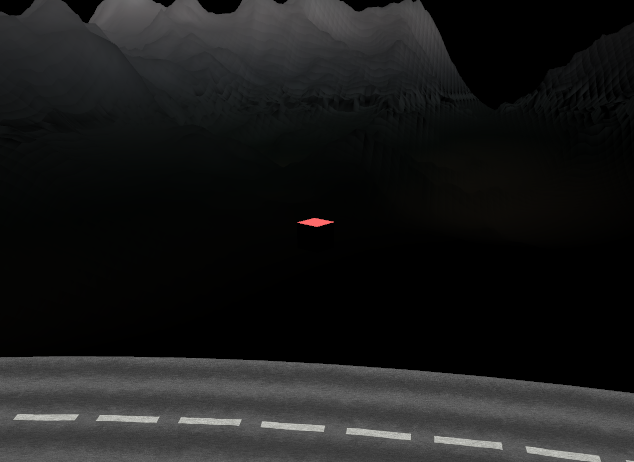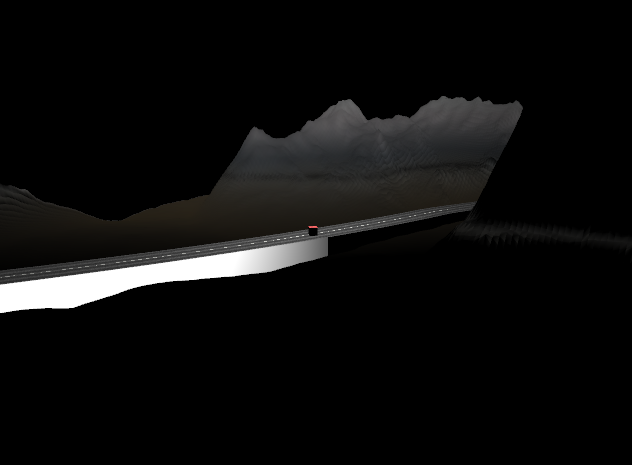I have a small problem calculating normals for my heightmap. It has a strange behavior. At the higher and the lower points the normals are fine, but in the middle they seem wrong. They are lighted by a point light. 
UNFIXED SOURCE REMOVED
EDIT: Tried 2 new approaches:
This is per-face-normal. It looks fine but you see the single faces.
Position normal = crossP(vectorize(pOL, pUR), vectorize(pOR, pUL));
I also tried to do it per-vertex this way, but also with a strange output.
This is the suggestion Nico made:
It looks also rather odd. Maybe there is a mistake how I calculate the helping points.
UNFIXED SOURCE REMOVED
EDIT 2: Definition of my points: OL,OR,UL,UR are the corner vertices of the plane that is to be drawn.
postVertPosZ1 postVertPosZ2
preVertPosX1 pOL pOR postVertPosX1
preVertPosX2 pUL pUR postVertPosX2
preVertPosZ1 preVertPosZ2
EDIT3:
I solved it now. It was a stupid mistake: I forgot to multiply the y value of the helping Vertices with the height Multiplier and had to change some values.



